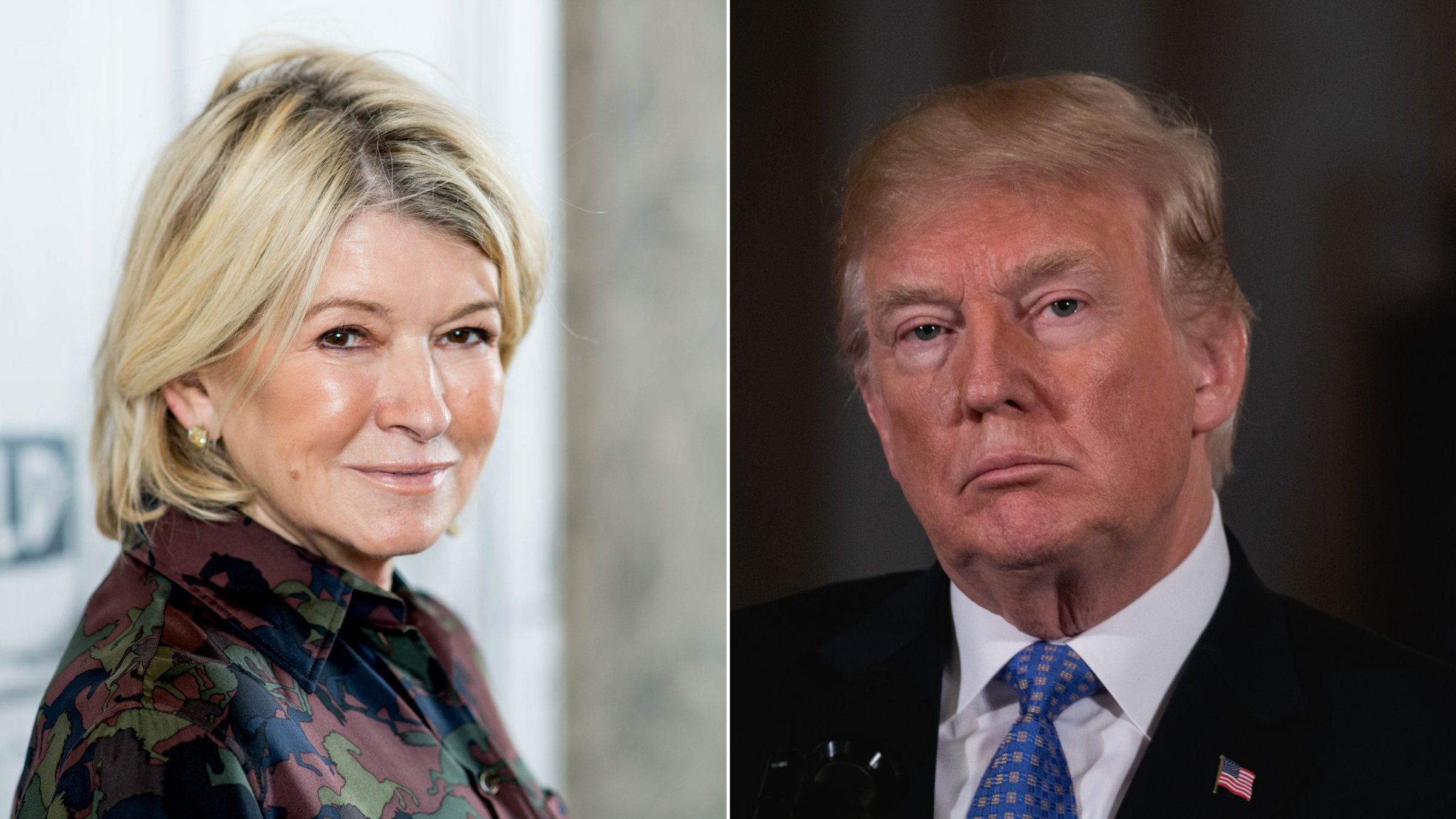
As a private citizen, Preet Bharara thinks President Donald Trump should “absolutely” sit down for an interview with Special Counsel Robert Mueller. But as a lawyer, he would advise him to stay away.
The former U.S. Attorney for the Southern District of New York said Tuesday that Trump would likely get himself in deeper trouble if he answered questions from the special counsel over the 2016 presidential campaign and his actions in office.
“Knowing that he has a penchant for lying on a regular basis, and knowing perhaps that he’s engaged in bad conduct … a lawyer’s advice is almost always ‘don’t talk,'” Bharara told TIME. “Martha Stewart didn’t get charged with insider trading, she got charged with obstruction, because she decided to come in and talk. Some people can’t help themselves. And if there ever was a person who seems like he can’t help himself it’s Donald J. Trump. ”
Stewart, the head of a multimedia lifestyle empire, was convicted in 2004 of making false statements to investigators and similar charges during an investigation into a suspicious stock trade. (Stewart is founder and COO of Martha Stewart Living, a magazine published by TIME’s parent company.)
Bharara’s comments came one day after the New York Times obtained and published a list of over four dozen questions that Mueller reportedly wants to ask the President in an interview as part of his investigation into Russian meddling and collusion in the 2016 presidential election. After reviewing the questions, Bharara said it is clear there is an “intense” focus on the possibility of the President obstructing justice, or purposely interfering with a legal investigation.
That’s because obstruction cases typically hinge on the thinking of the defendant at the time they took action, which prosecutors must show was specifically intended to disrupt the investigation.
The questions obtained by the Times include inquiries about Trump’s thought process and reaction to several key developments, including meeting with then-FBI Director James Comey in the Oval Office and a meeting with Russian officials in which he said Comey’s firing relieved pressure from the Russia investigation.
“One of the easiest ways to get to someone’s state of mind, to determine guilt or innocence, is to question them directly. Because these questions have been written in the context of a future interview, it just shows how much they are focused on the state of mind,” Bharara said. “I think before there was a very rational expectation that there was a lot of focus on the obstruction issue, but if these are the questions they intend to put to the President directly, then it erases all doubt.”
Bharara, who served as a federal prosecutor from 2009 until 2017, has maintained that the Trump Administration fired him after he refused to resign from his post last March.
Since that time, he has not only become a relatively outspoken critic of the Trump Administration, but has gained increasing notoriety on the national stage, launching a podcast, “Stay Tuned With Preet,” and joining CNN as a legal analyst. Last month, he held the first CAFE Change Summit, a daylong event that convened leaders in various industries to promote civic action, and has plans for similar events in the future.
Bharara did note that the Times report of Mueller’s team sharing these questions with Trump’s lawyers was virtually unprecedented, and not something he ever would have done, but that’s why he thinks these questions might not be the full story.
“Frankly, when I interview people I don’t necessarily always write questions out like this,” he said. “These strike me as a proxy, even though they’re very specific, for areas they might want to explore.”
More Must-Reads from TIME
- Donald Trump Is TIME's 2024 Person of the Year
- TIME’s Top 10 Photos of 2024
- Why Gen Z Is Drinking Less
- The Best Movies About Cooking
- Why Is Anxiety Worse at Night?
- A Head-to-Toe Guide to Treating Dry Skin
- Why Street Cats Are Taking Over Urban Neighborhoods
- Column: Jimmy Carter’s Global Legacy Was Moral Clarity
Write to Alana Abramson at Alana.Abramson@time.com